#NHTSA
Waiting for a Turbo Jeep Wrangler With Insane Horsepower? No so Fast…
Last week brought quite a flurry of excitement for eager Jeep Wrangler aficionados. The long-awaited next-generation JL model has steadily revealed its secrets in dribs and drabs, but last week’s National Highway Traffic Safety Administration filing appeared to reveal one of the biggest nuggets to date — a horsepower figure for the model’s 2.0-liter turbocharged “Hurricane” four-cylinder.
368 horsepower. Even from a unit expected to arrive with power in the neighborhood of 300 hp, this figure came as a shock. 368 hp isn’t “in the neighborhood” — it’s eight blocks over, past the train tracks, and in a better part of town.
Well, to all of you anticipating a real screamer of a Jeep, it’s time to hold your breath once again. Fiat Chrysler Automobiles has updated its NHTSA filing.
NHTSA Appoints New Deputy Administrator, Still No Department Head
Last week, we discussed how the National Highway Traffic Safety Administration had some staffing gaps that needed shoring up. While it remains shy one administrative head, the White House saw fit to officially appoint a new deputy administrator — effectively replacing acting deputy administrator Jack Danielson’s interim leadership.
Danielson has served as the NHTSA’s executive director since 2015, but spent the last eight months filling in for an absent department figurehead. He’s being relieved by Heidi King, an economist with the federal government and experience in the private-sector.
The NHTSA: Broken Down, Short on Staff, Slow on Change
The United States is still waiting on a glut of senior appointments within agencies that affect the automotive industry. While the Environmental Protection Agency eventually got Scott Pruitt, many high-ranking positions remain vacant at the EPA and other U.S. regulatory groups. The National Highway Traffic Safety Administration is still missing an administrator, chief counselor, director for government affairs, chief financial officer, and one enforcement chief.
With so many holes in its staff, former NHTSA officials and consumer advocacy groups are worried the agency has been rendered ineffective — essentially stalled on important decisions and issues that need the right kind of signature. Eight months is a long time to wait for an appointment and the NHTSA was only just given a deputy administrator, after former executive director Jack Danielson’s promotion.
Worried About Exhaust in Your Ford Explorer's Cabin? Ford Might Just Buy It Back
Well, it might if a news crew profiles your SUV. A Maryland couple’s 2016 Ford Explorer, one of many late-model Explorers suspected of emitting high levels of carbon monoxide into the cabin, turned out to be doing just that. However, even after the exhaust leak was confirmed — then fixed — by Ford, peace of mind did not return to Mark and Valentina Shedrick.
With an NBC news team sniffing around and a National Highway Traffic Safety Administration investigation ongoing, the automaker decided to buy back the vehicle. Other owners, including police departments, would likely prefer knowing their vehicle is safe.
FCA Recalls Almost 710,000 SUVs Over Previously Fixed Rotting Brake Boosters
Fiat Chrysler Automobiles says it is recalling nearly 710,000 sport utility vehicles to check on shields protecting the brake boosters. The shields were a new addition to a bundle of SUVs involved in a 2014 recall and FCA is worried they may have been installed improperly.
The company discovered that units exposed to water were subject to excessive corrosion, resulting in unacceptable brake pedal firmness. Affected vehicles also run the risk of degraded braking performance. FCA says it is aware of at least one accident associated with the problem but noted there were no injuries.
A Quarter of the Vehicles Sold Through CarMax Had Unresolved Safety Issues, Study Claims
Over 25 percent of the used vehicles sold through eight CarMax locations in the United States had recall defects that were not addressed, according to a recent safety report.
The 2017 study, conducted by the Center For Auto Safety, the Consumers for Auto Reliability and Safety Foundation and the MASSPIRG Education Fund, noted that vehicles with unresolved safety recalls had more than doubled since 2015 at the five locations surveyed in both years. That is worthy of a raised eyebrow or two.
Questions remain, however. While the review cites numerous locations selling vehicles with what many would consider unacceptable issues, we don’t definitively know if this is indicative of CarMax as a whole. But lets face it, there were 64 million vehicles recalled for safety problems last year — exceeding the total for the previous three years combined.
NHTSA's Updated Autonomous Safety Guidance Doesn't Actually Offer Any
On Tuesday, Transportation Secretary Elaine Chao outlined the Trump administration’s “Vision for Safety 2.0” at the University of Michigan’s Transportation Research Institute in Ann Arbor. The document is a collection of non-binding requests to manufacturers and a promise that they can go hog-wild with their autonomous vehicle testing, at least as far as the feds are concerned.
In a deluge of policy updates, the National Highway Traffic Safety Administration tweaked its vision for safety, claiming it was responding to the recent increase in the number of road accidents.
While Obama-era guidelines weren’t particularly robust, the Trump administration has essentially built a technical-sounding framework aimed at destroying regulatory red tape. Ironically, the government seems to have gone out of its way to ensure it stays out of the way. In some respects, it has to. The speed of development is beginning to happen at a rate where any outside bureaucracy would have difficulty keeping pace. Chao said the guidance would remain flexible, ready to adapt to the changes as they come. But it is also without teeth, promoting development and the future promise for safety at the expense of any meaningful oversight.
Did the Department of Transportation and NHTSA sell themselves out to industry or do they actually think giving automakers carte blanche on autonomous testing was the best thing for public safety?
Gas Fight! States Suing Trump Administration Over Stalled Fuel Economy Fines
A handful of states have banded together to sue the Trump Administration for delaying financial penalties associated with automakers’ inability to meet minimum fuel economy standards. As part of the president’s deregulation proposals, the National Highway Traffic Safety Administration has placed Obama-era mandates on review as regulators debate whether to grant automakers significant reductions in fuel economy requirements.
However, those changes have yet to arrive, meaning the industry is still under pre-existing standards — and some states want automakers held accountable. California, New York, Vermont, Maryland, and Pennsylvania want the current administration to introduce its proposed quotas or enforce the already established 2016 limits.
House Unanimously Approves Proposal to Deploy Self-driving Cars, and Not Everyone's Happy
On Wednesday, the U.S. House unanimously approved a sweeping proposal to expedite the deployment of self-driving cars and prohibit states from blocking autonomous vehicle testing.
“With this legislation, innovation can flourish without the heavy hand of government,” Ohio Republican Bob Latta said on the House floor leading up to Wednesday’s vote. Latta is chairman of the House Energy and Commerce subcommittee that developed the legislation with support from tech companies and the automotive industry.
One thing missing from the House measure is large trucks, which the Senate hopes to address in its own bipartisan legislation. Congress announced a September 13th hearing to examine the role of autonomous commercial vehicles and how they may fit into the Senate’s pending self-driving legislation. Meanwhile, the House’s bill moves up the board to be put to a vote within the Senate at a later date.
New U.S. Bill Would Update Automotive Rules, Allowing for Non-human Drivers
When the automobile came into its own, there wasn’t really a place for it. Roads had been reserved for foot traffic and horses for hundreds of years before the invention of the internal combustion engines. Pedestrian injuries were high until they were partitioned onto the sidewalk. Likewise, it was some time before the millions of horses were be rounded up, placed into a giant pit, and shot to death by 20th-century motorists.
However, the industry didn’t really take safety into account until Ralph Nader wrote Unsafe at Any Speed and holding automakers accountable for safety suddenly became fashionable — helping America pass the National Traffic and Motor Vehicle Safety Act in 1966 and subsequent legislation. Granted, vehicular fatality rates still fell dramatically between 1925 and 1965, but the regulatory influence didn’t skyrocket until after Nader’s analysis of the industry.
With autonomous vehicles positioned to change the way we “drive,” the long-established and ever-growing rulebook may need revisions. In July, a collective of automakers, suppliers, engineers, and consumer groups, calling themselves the Coalition for Future Mobility issued a statement urging Congress to consider legislation it deemed “critical to the United States continuing to be a place of innovation and development for the life-saving technologies.” Fast forward to August, and there is already a bill on the table.
Give the U.S. Government a Piece of Your Mind About Fuel Economy Rules
While the Trump administration continues gearing itself up to loosen fuel standards for automakers, much to the chagrin of environmentalists and other countries, the agencies that set those benchmarks want to pick your brain a little before making a final decision. You’ve got an opportunity to be part of the process — the painfully boring, yet incredibly important, process.
On Thursday, the U.S. Environmental Protection Agency and the Department of Transportation opened a public comment period on the reconsideration of the standards for greenhouse gas emissions for light vehicles built for the 2022-2025 model years. Additionally, the EPA wants comments on the appropriateness of the existing 2021 standards. The agencies are inviting the public to submit any relevant (i.e. factual) data and information that can inform a final decision of the standards.
NHTSA Expands Ford Explorer Probe After Probable Police Gassings
The U.S. National Highway Traffic Safety Administration is inching its way toward what could be a massive recall of Ford Explorers. An initial probe kicked off in 2016 after owners entered numerous complaints of an unpleasant exhaust smell in the cabin into the NHTSA database.
Formal grievances swelled into the hundreds by the end of the year and continued growing into 2017. The issue was so serious, one California police officer faulted it for overpowering him while behind the wheel of his Explorer-based Interceptor Utility, resulting in a crash last February. He wasn’t alone. On Thursday, the NHTSA announced at least three other wrecks could be attributed to carbon monoxide exposure inside the vehicle. All in all, the agency stated it is aware of 41 injuries and over 2,700 complaints linked to the issue.
While the injuries are mostly instances of nausea, severe headache, and dizziness, those symptoms pose a serious risk while driving. Concerned the problem could result in another crash, the NHTSA has broadened the probe to encompasses 1.33 million vehicles from 2011 to 2017 and upgraded it to a complete engineering analysis.
The Millions of Airbags Takata Replaced Could Still Be Extremely Dangerous
Takata, the parts supplier that furnished automakers with millions of extremely dangerous airbag inflators, was forced to issue another recall last week. Considering the hundreds of millions of units already recalled by the company, another 2.7 million is a drop in the bucket. But there’s a slight problem, as these newly recalled inflators are devices that have already been replaced.
In 2015, regulators specified Takata had until the end of 2019 to ensure its replacement airbag inflators were safe. With the “fixed” units now under scrutiny, automakers may be liable for the supplier’s wrongdoing as the millions upon millions of recalled inflators would need to be replaced for a second time. The current recall was prompted after the U.S. National Highway Traffic Safety Administration found the drying agent added specifically to combat the moisture that degrades the ammonium nitrate compound wasn’t effective.
“Absent proof that the other desiccated inflators are safe, they will also be subject to recall,” the NHTSA said in a statement last week.
Trump Administration Re-examining Penalties for Fuel Economy Flubs
Automakers’ ability to adhere to the regulatory standards set by the U.S. government are beginning to slip. Manufacturers predicted industry-wide economy inadequacies for 2016 model year vehicles, anticipating things would only worsen for 2017. The Trump administration has framed itself as a friend to automotive companies, with the president himself claiming he would remove regulatory hurdles while in office. Corporate economy guidelines established under President Obama are already under review, but now so are the penalties companies would have to pay for not meeting them.
In a regulatory filing on Friday, the National Highway Traffic Safety Administration said it would be seeking public comment on how to revise plans, slated to go into effect from the 2019 model year, which would more than double the penalties on auto manufacturers that fall short of meeting the government-set economy targets.
NHTSA Poised for Potential Deregulation Bonanza on Automotive Safety Aids
We knew the Trump administration wanted to deregulate the automotive industry in order to free it from any production hangups, be it imagined or genuine. However, some of the items under consideration for potential elimination are safety features that seem silly to go without. At the top of that list is the requirement that all electrically driven vehicles must emit noise to alert pedestrians to their presence.
However, this isn’t the only safety feature at risk of becoming an optional extra. In budget documents provided to Congress, the National Highway Traffic Safety Administration specified it is considering six separate areas for deregulation. Those include the modern standard for rear-view mirrors and backup cameras in passenger cars, mandatory electronic stability-control units for heavy trucks, and a rule allowing car dealers to install switches to deactivate airbags in customer vehicles.
While some of the rules could be abolished entirely, others are more likely to undergo some gentle retooling to provide automakers greater flexibility. Automakers have long pressed for the revamp of some antiquated, NHTSA-administered safety standards in order to permit the introduction of newer technologies. Still, eliminating any safety mandate is likely to raise the ire of consumer safety advocates, whether the end goal is well-intentioned or not.





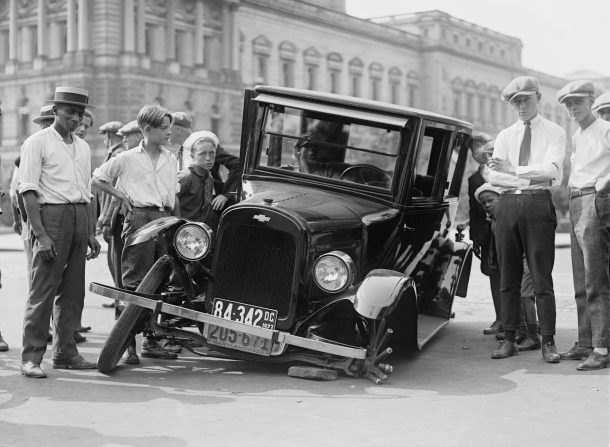



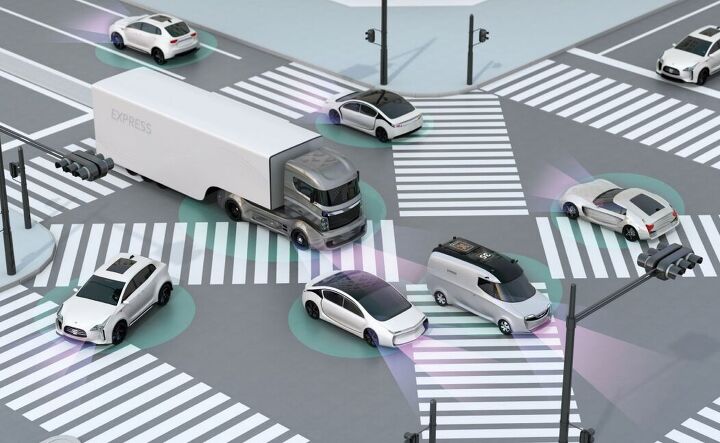
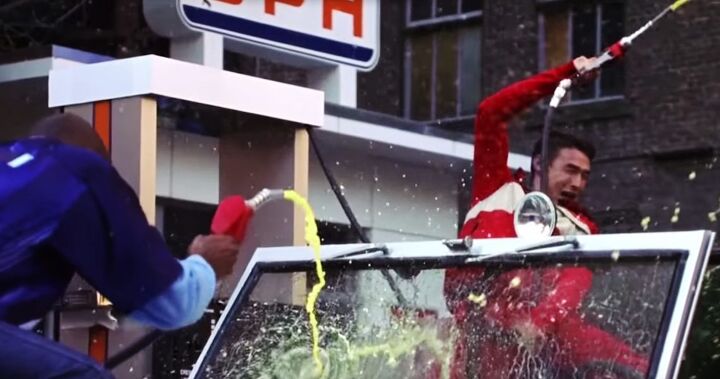
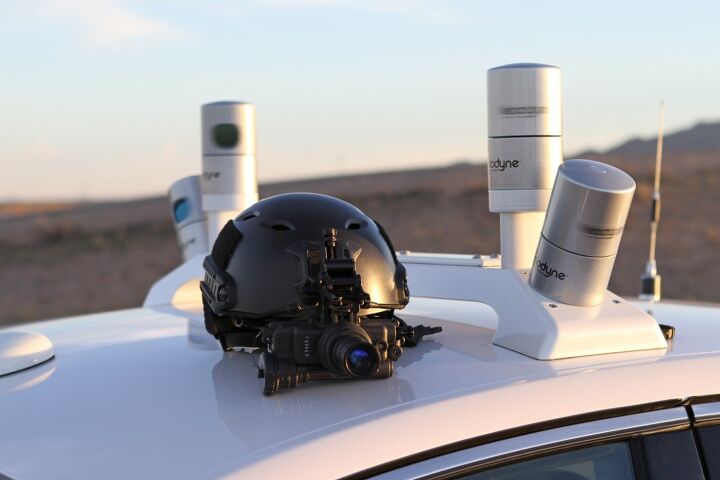



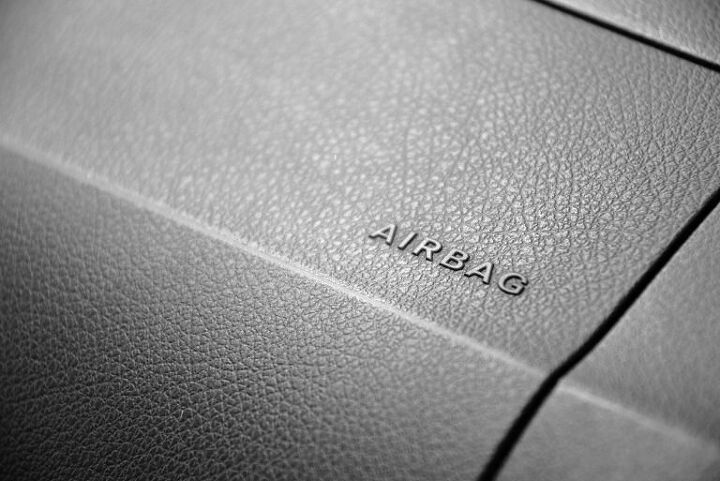
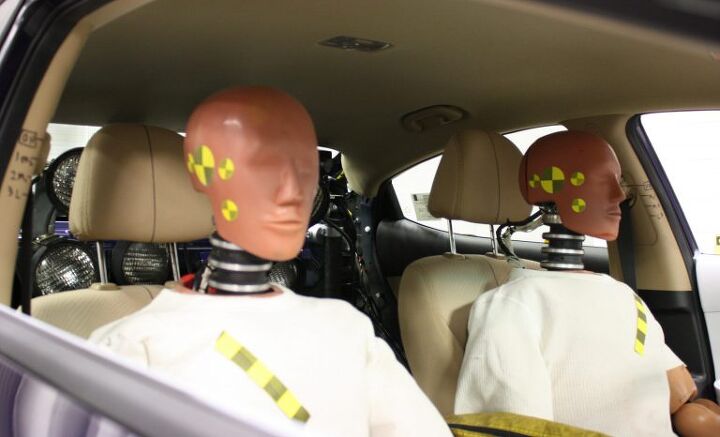












Recent Comments